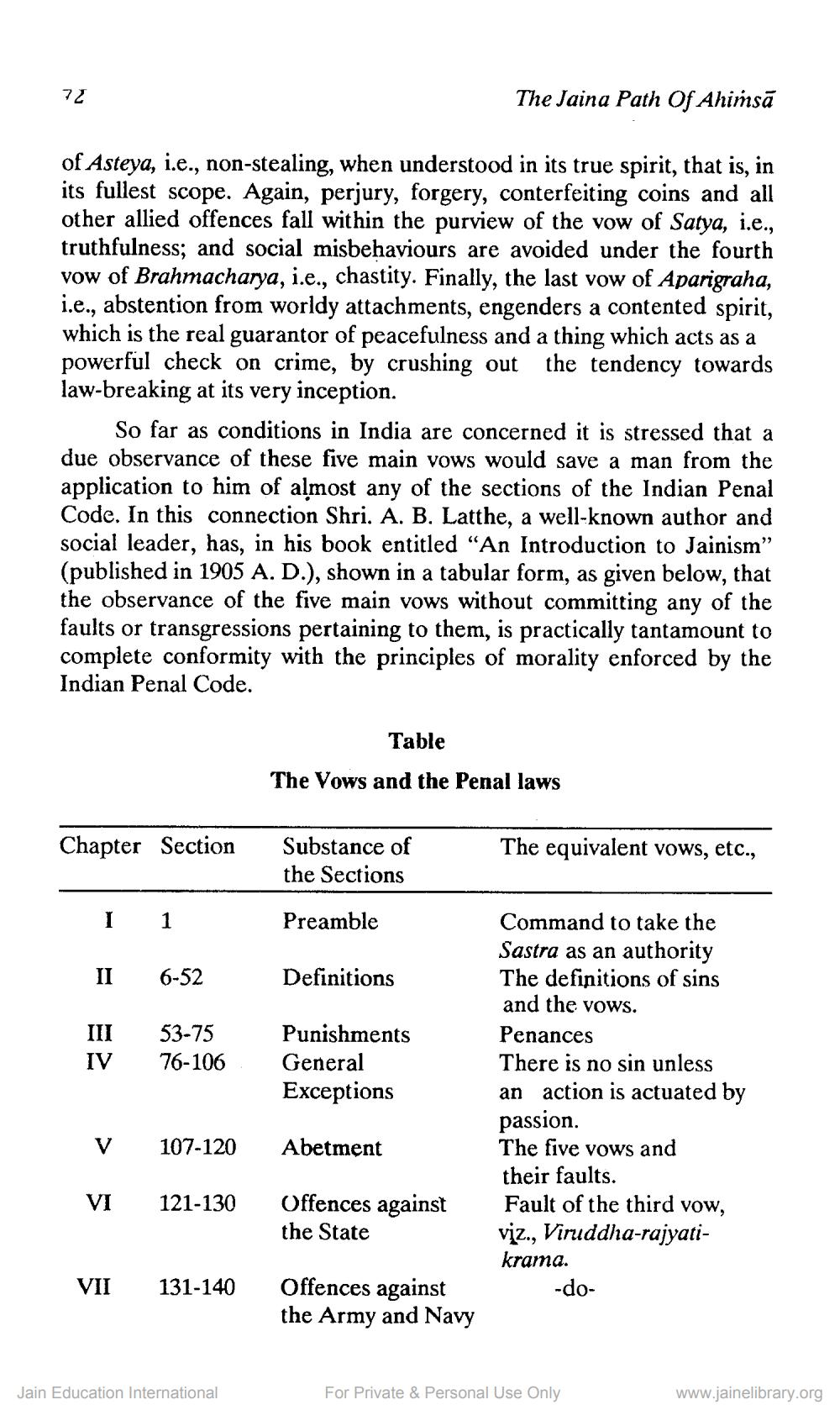________________
The Jaina Path Of Ahimsa
of Asteya, i.e., non-stealing, when understood in its true spirit, that is, in its fullest scope. Again, perjury, forgery, conterfeiting coins and all other allied offences fall within the purview of the vow of Satya, i.e., truthfulness; and social misbehaviours are avoided under the fourth vow of Brahmacharya, i.e., chastity. Finally, the last vow of Aparigraha, i.e., abstention from worldy attachments, engenders a contented spirit, which is the real guarantor of peacefulness and a thing which acts as a powerful check on crime, by crushing out the tendency towards law-breaking at its very inception.
72
So far as conditions in India are concerned it is stressed that a due observance of these five main vows would save a man from the application to him of almost any of the sections of the Indian Penal Code. In this connection Shri. A. B. Latthe, a well-known author and social leader, has, in his book entitled "An Introduction to Jainism" (published in 1905 A. D.), shown in a tabular form, as given below, that the observance of the five main vows without committing any of the faults or transgressions pertaining to them, is practically tantamount to complete conformity with the principles of morality enforced by the Indian Penal Code.
Chapter Section
I
II
1
6-52
III
53-75
IV 76-106
V 107-120
VI 121-130
VII 131-140
Jain Education International
Table
The Vows and the Penal laws
Substance of the Sections
Preamble
Definitions
Punishments
General
Exceptions
Abetment
Offences against the State
Offences against the Army and Navy
The equivalent vows, etc.,
Command to take the Sastra as an authority The definitions of sins and the vows.
Penances
There is no sin unless an action is actuated by
passion.
The five vows and their faults.
Fault of the third vow, viz., Viruddha-rajyatikrama.
-do
For Private & Personal Use Only
www.jainelibrary.org




